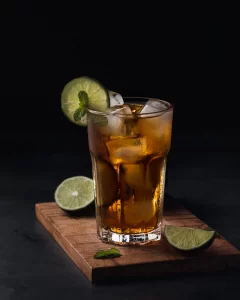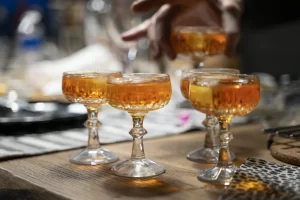Georgia Liquor Laws And Regulations
Each state in the US has its own liquor laws and regulations, but there will also be federal laws concerning alcohol that have to be adhered to. Georgia has many state laws regarding alcohol, much like other states, where only a person over 21 years of age can purchase or sell alcohol.
If you are thinking about operating a distillery in the state of Georgia, then you will need to be aware of the liquor laws and regulations in this state.
Georgia Liquor Laws And Regulations
In Georgia, it is only legal for persons over the age of 21 to purchase, sell, and consume alcohol. It is unlawful for any person under the age of 21 to enter an establishment which sells alcohol for consumption. The exemption to this rule is that a person under 21 can enter such an establishment if they are purchasing food.
It is also unlawful for any person to sell alcoholic beverages to a person who is under the age of 21 in the state of Georgia. It is therefore the duty of the person selling the alcohol to request proper identification to check the date of birth of the customer.
In addition, it is unlawful for any person under the age of 21 to allow someone else to purchase alcoholic beverages for them.
It is also considered unlawful in Georgia for a person under 21 to enter a business that sells packaged distilled spirits. There are exemptions to some of these laws, such as if a person employed in an eating establishment is under 21, they can enter, but they cannot serve or dispense alcoholic beverages.
Other laws include ‘brown bagging’ or ‘BYOB’. This means that any licensee or establishment cannot allow customers to bring their own alcoholic beverages as this is against the law.
Additional laws state that it is unlawful for anyone to drink or have in their possession an open container of alcoholic beverage while on a public street, sidewalk, or public place.
This also includes within a motor vehicle. In addition, you cannot have an open container on private property open to public view without the permission of the owner.
If you are licensed to sell alcoholic beverages, then all licensees must adhere to both federal and state laws, along with municipal ordinances and rules and regulations. This includes licensing qualifications.
Is Georgia A Liquor Control State?

A control state is where the government is involved with the selling and distribution process of alcohol. In these control states, you may only be permitted to purchase and sell alcohol in state run retail stores.
What this means is that in these states, a person can only purchase liquor at an ABC store, and is not able to walk into a grocery store or gas station in order to buy liquor. In control states, it is much harder for brands to enter the market and the licensing process is far more complex.
The good news is that Georgia is not a control state! Only Alabama, Idaho, Iowa, Michigan, Mississippi, Maine, Montana, New Hampshire, Ohio, Oregon, North Carolina, Pennsylvania, Utah, Vermont, Wyoming and West Virginia are control states.
Can You Distill Alcohol In Georgia?
Yes, you can legally distill alcohol in Georgia. But, if you wish to distill alcohol legally, you will need to obtain a commercial distillery license, and the basic TTB license and TTB Distilled Spirits License in order to proceed.
In order to sell alcohol in Georgia, you also need to be at least 21 years old, have the correct insurance for the environment in which you are selling the alcohol, along with a local alcohol license, and a federal basic permit. Not only this, but you will also need a business license.
It is also legal to own a non commercial still as long as it is not used to distill spirits or to make moonshine. You can also manufacture beers and wines for personal use.
The regulations state that the total quantity of malt beverages produced in a private residence cannot be more than 100 gallons per calendar year if there is only one person of legal drinking age living in the residence, and no more than 200 gallons per calendar year if there are two or more persons of legal drinking age in the residence. In addition, no more than 50 gallons can be produced in a 90 day period.
If you wish to distill, produce and resell spirits, then you will need to pay around $1,100 for the license and investigation fee. You will need several licenses to legally manufacture spirits, such as a Basic Permit, along with a license for distilling equipment and a distillery so that you can register a distilled spirits plant.
How To Operate A Distillery In Georgia

If you want to open a distillery in the state of Georgia, then you will first need to complete a Georgia Distillery License application online via the Georgia Tax Center site. To do so, you will need all of the following documentation:
- Liquor Distillery Bond Form
- Citizenship Affidavit Form & Verifiable Documents
- Scanned Copy of Federal Basic Permit
- Scanned Copy Of Property Deed/Lease
- Scanned Copy Of Local License
- Scanned Copy Of Annual Registration From the GA Secretary Of State
- Georgia Alcohol & Tobacco Personnel Statement Form
- ATT-104/ COLA & Labels Form
- Financial Affidavit (if applicable)
You will also need to have paid the Distillery License fees. Licensing fees may vary, but according to the Georgia government website, you will need to pay an investigation fee of around $100, with Brewery, Winery, and Distillery fees around $1000 to gain a license. You can find more information from the Department of Revenue from the State Of Georgia website.
What Time Can You Buy Liquor In Georgia?
Licensed package stores can sell liquor in Georgia Monday through to Saturday between the hours of 7am and 11:45 pm. These licensed package stores can also sell liquor on a Sunday between the hours of 12:30 pm and 11:30 pm.
Licensed Consumption Practices are also permitted to sell liquor Monday through to Friday from 11 am to 12:45 pm. These Licensed Consumption Practices can also sell on Saturdays from 12:30 pm to 11:30 pm, and on Sundays from 12:30 pm to 11:30 pm.
Can You Buy Liquor In Georgia On Sunday?
Yes, you can legally purchase and sell liquor on Sundays in the state of Georgia. However, this can only be done within the permitted hours stated above.
Final Thoughts
To summarize, the state of Georgia has many liquor laws and regulations. Much like the other states, only a person over the age of 21 can purchase or sell alcohol. If you want to open a distillery, then there are many fees and licensing requirements that you need to follow before you can operate, which you can find in this guide.









